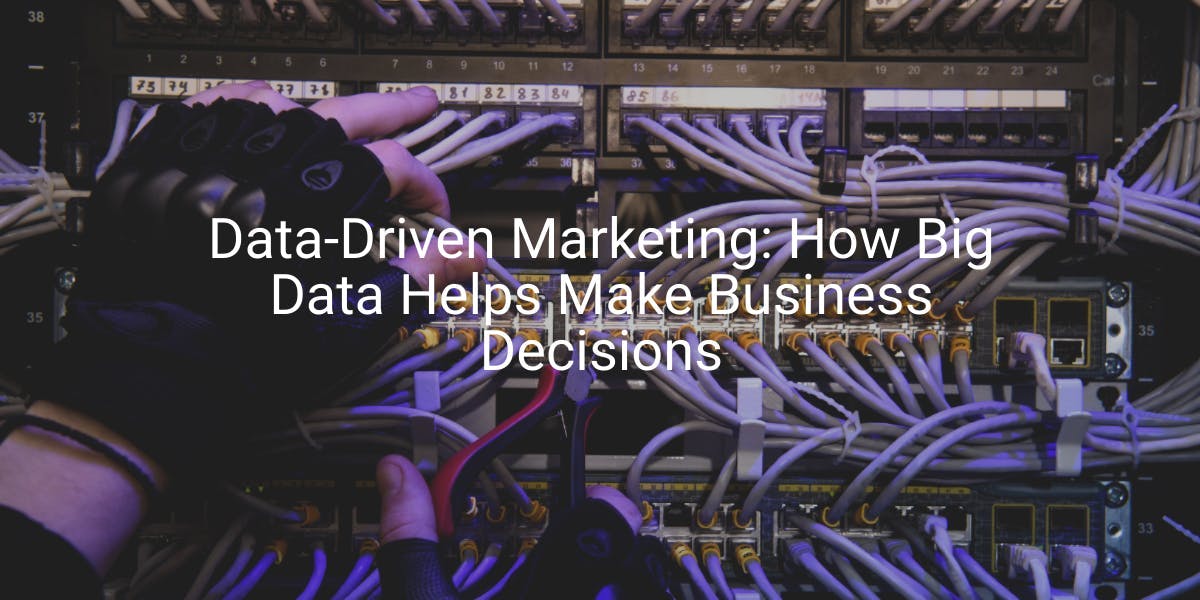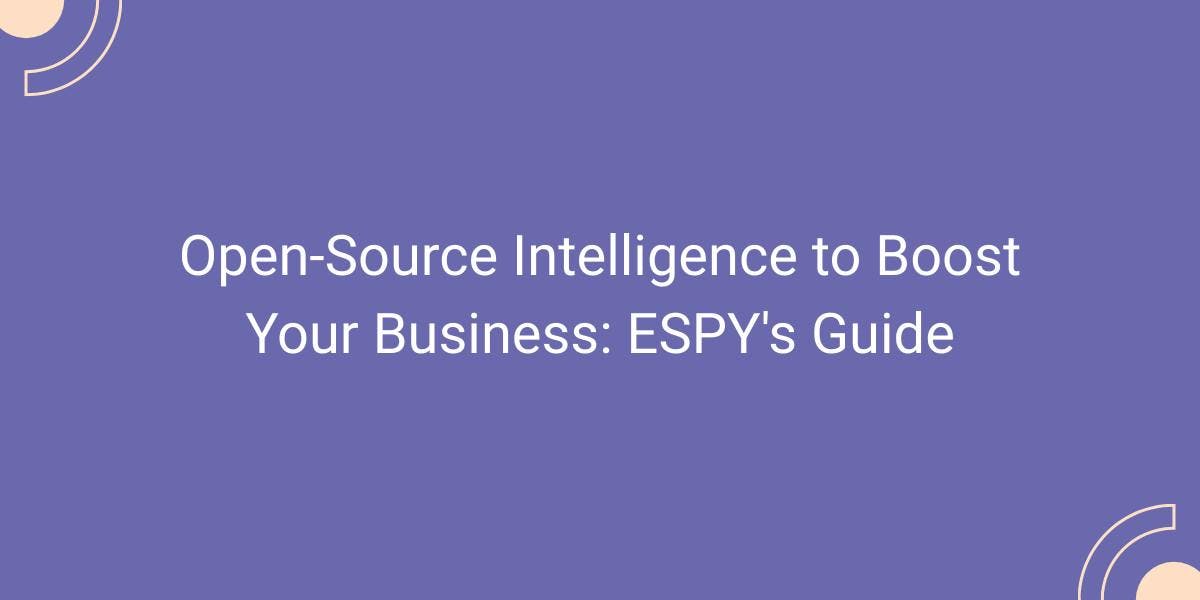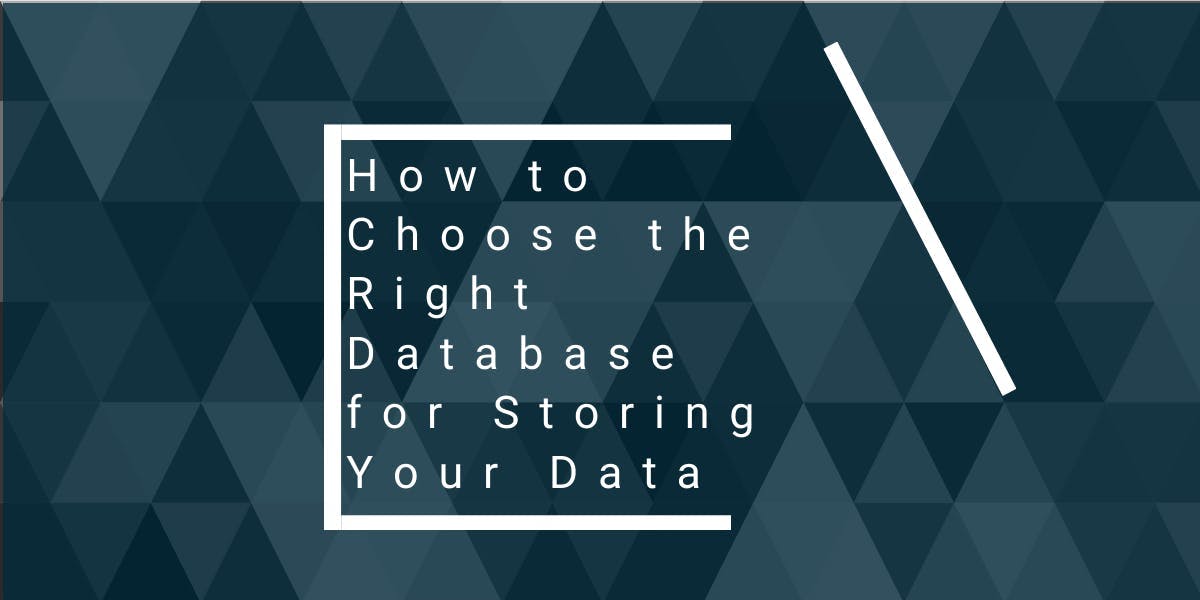Data-Driven Marketing: How Big Data Helps Make Business Decisions
Flipnode on May 26 2023

A recent study conducted by McKinsey shed light on the remarkable growth of the retail sector between March and August 2020, highlighting the importance of data-driven marketing. However, many companies faced challenges due to their outdated data modeling, which hindered their ability to capture evolving consumer preferences in a timely and detailed manner.
To overcome this limitation and harness the power of data, companies need to develop a data-driven plan that focuses on acquiring and leveraging relevant information for informed decision-making. This article aims to delve into data-driven marketing and explore how companies can effectively utilize big data to shape their business strategies.
What is data-driven marketing?
To gain a comprehensive understanding of data-driven marketing, we must explore its two key components: big data and marketing itself.
Big data refers to the vast and diverse sets of information that have become too large and complex to be efficiently processed by traditional data processing tools. In the context of marketing, big data incorporates behavioral trends, location-based information, and analytics. This valuable data can be sourced internally or through third-party services that provide insights on competitors, consumers, and the overall business landscape.
Marketing, on the other hand, encompasses the various strategies and actions undertaken by a company to engage with its target audience, cultivate strong relationships, and create value that leads to favorable returns. It involves market research, strategic planning, data-driven advertising, and more.
The intersection between marketing and big data becomes evident when we consider how these two components work together to drive effective marketing campaigns and initiatives.
What is data-driven marketing?
Data-driven marketing is a strategic approach that harnesses consumer data to optimize e-commerce purchasing and enhance communication. It represents a revolutionary shift in online advertising, leveraging data to gain deeper insights into consumer behavior, preferences, and motivations. This customer-centric marketing approach prioritizes personalization, enabling businesses to tailor their messaging and offerings to individual customers.
Typically, companies implementing a data-driven marketing approach acquire data sets through three primary methods: partnering with third-party companies, utilizing public web scraping techniques, or directly engaging with their customers.
Benefits of using big data in marketing
There are numerous advantages for companies that adopt data-driven strategies. Let's explore some of them:
- Attracting new customers: According to Forbes, companies that embrace data-driven marketing are six times more likely to experience increased profitability. They also report higher levels of customer engagement, loyalty, and satisfaction.
- Increasing sales: Data-driven marketing strategies have been shown to contribute to double-digit sales growth. For example, during the six months ending in August 2020, companies employing such strategies witnessed significant sales increases, as demonstrated by a consumer-goods company that experienced double-digit growth in sales of beauty products by leveraging data such as municipal reporting, traffic data, and epidemiological information.
- Meeting customer expectations: The use of big data allows marketers to personalize and customize experiences based on individual customer needs. With a significant percentage of customers expressing frustration with irrelevant content and ignoring offers that lack personalization, leveraging data for customization can have a significant impact. Senior executives recognize personalization as a valuable aspect of data-driven marketing, with studies showing a 400-700% increase in ROI when personalization is integrated into data-driven strategies.
Overall, data-driven marketing empowers companies to attract new customers, boost sales, and meet customer expectations through personalized experiences, ultimately driving profitability and business success.
Ways to use big data in marketing
Data plays a crucial role in different stages of marketing, particularly in market research and strategy formulation. By utilizing data from various sources, marketers can identify groups of individuals with similar preferences and behavior. This enables the marketing team to focus on each group by personalizing offers and messaging. For example, a marketer aiming to reduce ad waste may segment the target audience and tailor the advertisements accordingly.
A recent study highlighted several popular objectives among marketers, including:
- Increasing customer loyalty (46%)
- Improving conversion rates (43%)
- Optimizing the customer journey towards purchasing decisions (42%)
- Enhancing engagement with various types of content (35%)
- Identifying the most effective marketing channels (28%)
- Minimizing ad waste and maximizing ad performance (21%)
- Making sense of diverse data sources (16%)
- Enhancing multi-touch attribution (11%)
Marketers in your company may choose to pursue one or several of these objectives to develop effective strategies. For instance, they might opt to segment the target audience to minimize ad waste or increase engagement and loyalty by personalizing messaging for specific audience segments. By leveraging data effectively, marketers can make informed decisions and optimize their marketing efforts to achieve their desired objectives.
Key challenges of data-driven marketing
Data-driven marketing, while advantageous, faces several challenges that can be categorized into three main areas: data collection, data organization, and data analysis.
Data collection challenges arise as marketers aim to gather high-quality data that yields actionable insights. With the emergence of new technologies, the volume of data generated increases daily, making it difficult to manage and ensure its usefulness. Keeping the data up-to-date and complete is crucial to address concerns and capitalize on emerging trends.
Data organization poses challenges as marketers deal with both structured and unstructured data. While tools are available for organizing structured data, unstructured data from internet-based sources like websites and social media platforms can be more challenging to handle. Additionally, collecting data from multiple sources leads to fragmented and messy data, requiring a process of harmonization to separate high-quality data from noise.
Data analysis challenges arise from the sheer volume of regularly updated data, which can include irrelevant information for marketing campaigns. While real-time and up-to-date data have their benefits, it can quickly become obsolete. Extracting useful insights from this vast amount of data within a short time frame becomes crucial for delivering optimal customer experiences across all touchpoints.
Overall, addressing these challenges is essential to fully leverage the potential of data-driven marketing and overcome the obstacles that can hinder its effectiveness.
Web scraping for data-driven marketing
Fortunately, advancements in technology have resulted in the development of robust and dependable public web scraping solutions, including popular tools like Python for web scraping. These tools come equipped with various features designed to address the challenges encountered in data-driven marketing.
For instance, they offer capabilities for extracting large volumes of data, transforming unstructured data into structured formats, bypassing website blocks to access relevant information, providing location-specific data, and adapting to changes on websites. Some solutions even incorporate web crawlers that actively search the internet for real-time data, which can then be extracted using the web scraper.
By utilizing web scraping, companies and marketers can streamline the process of data collection and organization, ultimately simplifying data analysis. To fully leverage the benefits of web scraping, it is advisable for businesses to invest in reputable public web scraping technologies offered by reliable service providers. Such investments will enable them to stay ahead in accessing and utilizing both existing and emerging data, particularly in the context of data-driven digital marketing.
Wrapping up
Big data refers to vast sets of data encompassing human behavior and preferences, providing valuable insights that shape business decisions. One notable application is audience segmentation, where companies can divide their target audience into distinct groups based on relevant data. By leveraging this information, data-driven digital marketing campaigns can be customized to cater to each segment's preferences and interests. In essence, big data facilitates personalization and aids in the formulation of effective marketing strategies.
Despite the advantages, the sheer volume of data poses challenges in terms of collection, organization, and analysis. However, these challenges can be addressed with the assistance of public web scraping solutions. These solutions offer valuable support to marketers and companies, enabling them to overcome the hurdles associated with data management and utilization.



